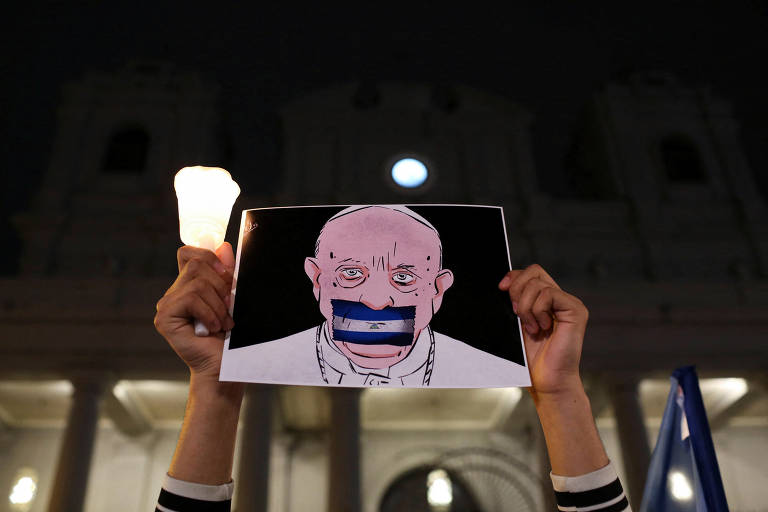This Sunday (Mar. 12), two days after Pope Francis classified Nicaragua’s dictatorial regime as a “gross dictatorship,” dictator Daniel Ortega decided to suspend diplomatic relations with the Vatican.
Nicaragua’s former ambassador to the Organization of American States (OAS), Arturo Mcfields, called the statement issued by Ortega “ambiguous and evasive.” Mcfields broke off relations with the dictator in 2022.
The country has been in crisis since 2018, when the authorities violently suppressed anti-government protests, leaving more than 300 dead and thousands injured.
Daniel Ortega has been in power since 2007 and is accused of violating human rights and promoting political repression in the country.

“Given the information released by sources linked to the Catholic Church, the Government of Reconciliation and National Unity of our Nicaragua, Blessed and Always Free, affirms that between the Vatican State and the Republic of Nicaragua, diplomatic relations are suspended.”
“It is noted how the media linked to the terrorist coup that attacked and murdered the Nicaraguan people in April 2018 were the ones who spread this distorted news that in these times is known as fake news,” says the statement issued by the Ministry of Foreign Affairs of Daniel Ortega.
Last Friday (Mar. 10), Pope Francis classified the Nicaraguan regime as a “gross dictatorship” and declared that Daniel Ortega has an “imbalance” during an interview with the Argentine newspaper Infobae.
The pontiff’s statements were made days after Daniel Ortega’s regime closed universities linked to the Catholic Church.
Earlier this month, a group of experts from the United Nations (UN) equated the Nicaraguan regime to the Nazi regime. According to the experts, Ortega and his agents “have committed and continue to commit grave and systematic violations of human rights abuses.”
In February, the bishop of Matagalpa, Rolando José Álvarez Lagos, refused to leave Nicaragua and other political exiles. The bishop was sentenced to 26 years in prison for criticizing the Ortega regime.
Bishop Álvarez’s name was on the 222 political prisoners banished from Nicaragua by Ortega, but the bishop did not go on board with the other exiles.
The bishop became Ortega’s target for denouncing, in his sermons, the severe violations of human rights in Nicaragua.
The prelate was arrested along with seven other people – priests, deacons, seminarians, and a layman – when the police raided the parish house in the early hours of August 2022.
In December 2022, while speaking during a military graduation ceremony, Ortega attacked the Catholic Church and confessed that he never had respect for bishops.
Responsible for the persecution of priests, bishops, and nuns in the country, the dictator criticized the resistance of members of the Church to his regime and called himself a Christian.

